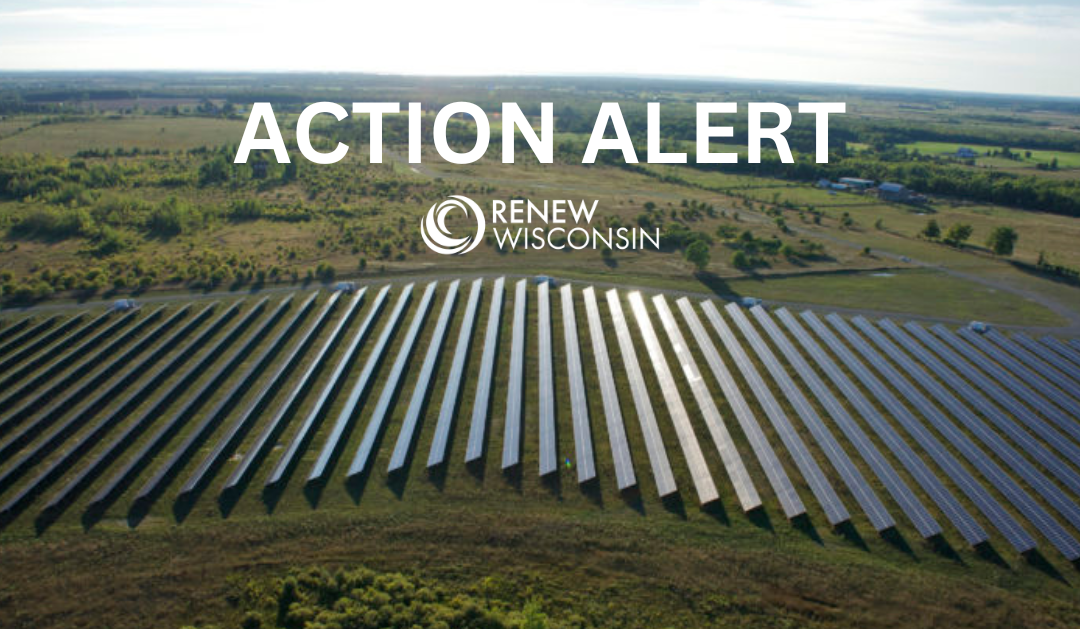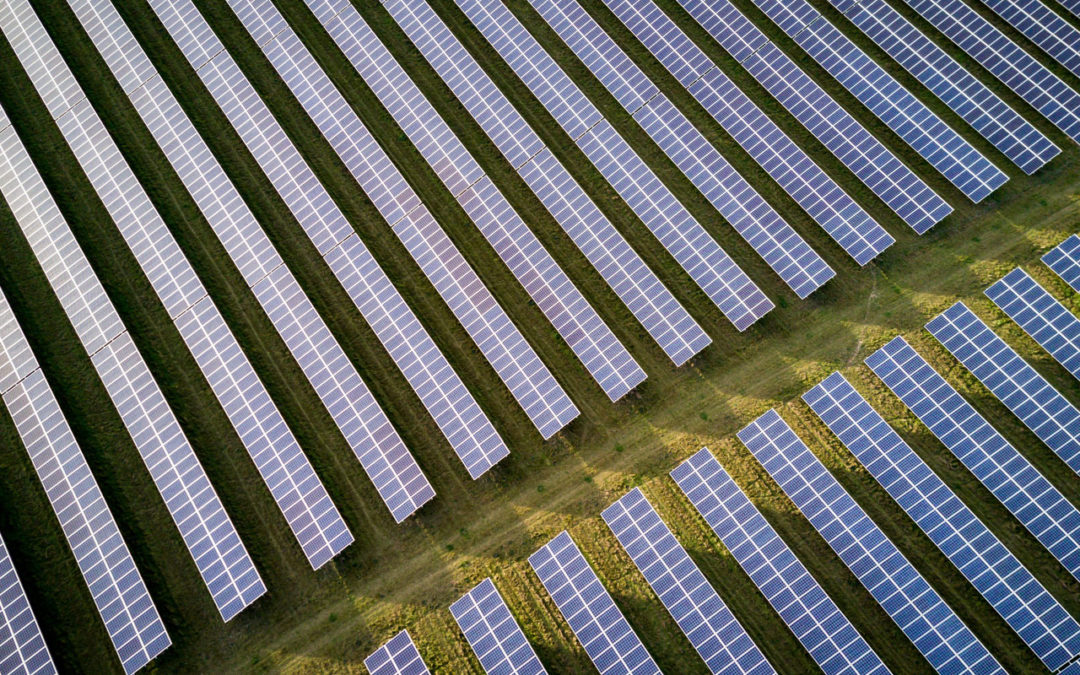
Action Alert: Submit Comments in Support of Muddy Creek Solar
Public comments are open now through February 23 for Muddy Creek Solar, a 322 Megawatt (MW) solar project paired with a 300 MW battery energy storage system. If approved, the solar project will be located in Dunn County and is planned for completion in 2029. Projects like this have a wide range of local and statewide benefits. Show your support for this project and tell the Public Service Commission of Wisconsin (PSC) why you support the approval of a vital solar project in Wisconsin!
You can use some of the listed benefits below to help you craft your message.
(update: public comments for this project have now closed. We will share an update when the PSC announces their decision)
Muddy Creek Solar isn’t just about the clean energy it will produce. The 322 MW facility in Dunn County has many benefits:
- Economic Growth: According to witness testimony provided by David Loomis of Strategic Economic Research, Muddy Creek Solar will create more than 800 temporary jobs during construction, as well as more than 52 good-paying, long-term jobs across Wisconsin due to economic stimulus related to the project.
- Community Benefits: Once in service, Muddy Creek Solar will contribute more than $1,605,000 in utility-aid payments each year. $909,500 of this will go to Dunn County, while the remaining $695,000 will go to the Town of Spring Brook. During its 25-year life, the project will contribute a total of over $40 million in utility-aid payments.
- Emissions Reductions: Muddy Creek Solar will reduce energy production emissions by 954 million pounds of CO2 in the first year of operations. In terms of greenhouse gas emissions, this is the equivalent of taking more than 94,000 vehicles off the road for a full year. Additionally, non-GHG emissions reductions will result in health, economic, and environmental benefits. Wisconsin can expect more than $2 million in economic benefits associated with public health improvements in Muddy Creek Solar’s first year of operations alone.
Submit your comments today and tell the PSC you support the approval of Muddy Creek Solar. Feel free to use some of the bullet points above to craft your own unique message.

